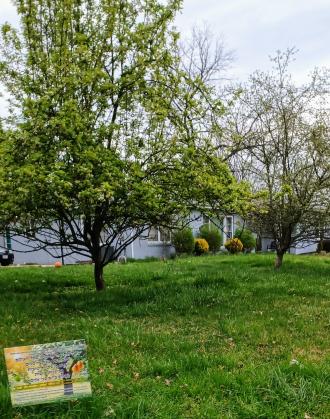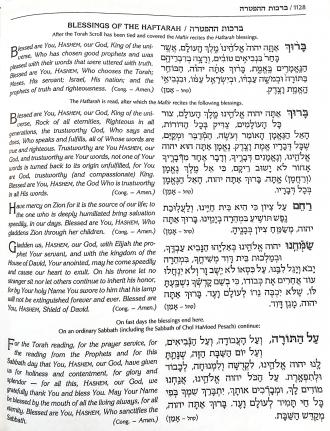[Ed. Note] Out of the respect and recognition of the impact made by longtime BJL friend and contributor, Reb Shaya Gross, z’l, we will maintain a living memoriam to Shaya through the sweet words and thoughtful insights of his Divrei Torah. BJL readers will remember his weekly column on the Parsha and on various Torah ideas and concepts. These meaningful words will help us remember this special young man who will be sorely missed and for those who did not merit to know him, this will be the most appropriate way for them to become familiar with who he was.
In Parshas Eikev, we read the verse stating that Hashem’s eyes are on Eretz Yisrael "from the beginning of THE year to year's end" [mayrayshis HAshana vi'ad acharis shana].
Rav Shimon Schwab asks, why, when the Pasuk refers to the beginning of the year, does it refer to it with the "hay," HAshana [THE year], whereas when referring to the end of the year, the pasuk simply writes shana [year] without the hay?
Rav Schwab answers our question based upon the following Gemara in Rosh Hashana [16b]: The Gemara learns from our Pasuk that "any year that begins as a 'poor' year will end with riches and blessings." What does the Gemara mean that a year 'begins as being poor?' Rashi explains that Klal Yisroel 'make themselves poor' by davening a lot. [How does our davening a lot make us poor? Rav Hopfer explained to me that one of the main Yesodos [fundamental concepts] in davening is to realize and acknowledge that everything we have is from Hashem. All of our wealth, cars, and houses, etc. are gifts from Hashem. If we recognize this idea during davening, we are 'making ourselves poor', and will then 'ironically' have a prosperous year].
Based upon the above Gemara and Rashi, Rav Schwab explains that when referring to the beginning of the year, the Pasuk uses the "hay," since when Klal Yisroel are davening a lot and are on an elevated spiritual level, it is THE year i.e. a great year. But once the blessings have already been bestowed on Klal Yisrael, our human-nature-tendencies cause us to slip back into our old habits, and the year ends as just another regular year. Therefore, there is no "hay" to connote to this unfortunate phenomenon.
I think many of us experience this phenomenon at some point in life. We start a project or goal and work very hard on it, be it Daf Yomi, other learning sessions, or breaking a bad habit, but then the inspiration leaves us and we slip back into our old ways
What is the remedy to this? How do we combat this phenomenon to make our whole year a "HAshana" year? Two pieces of advice: 1. To try to develop a love and joy in whatever it is that we are working on. When a person does something with joy, [s]he connects to it, and becomes attached to it , and will continue doing it. 2. Davening. One place in davening where we can have kavana to plead with Hashem to help us combat this frustrating habit is in Shemoneh Esrei at the beginning of Baruch Aleinu. We say, 'Bareich aleinu Hashem Elokaynu es HASHANA hazos.' We can intend in that bracha to ask that Hashem bless us with the stamina and fortitude to make the whole year into a "HAshana" year!
As the year is drawing to a close, may we all merit to complete it on the high note on which we began on Rosh Hashana, and thus make the whole year a "HAshana" super productive year.

















